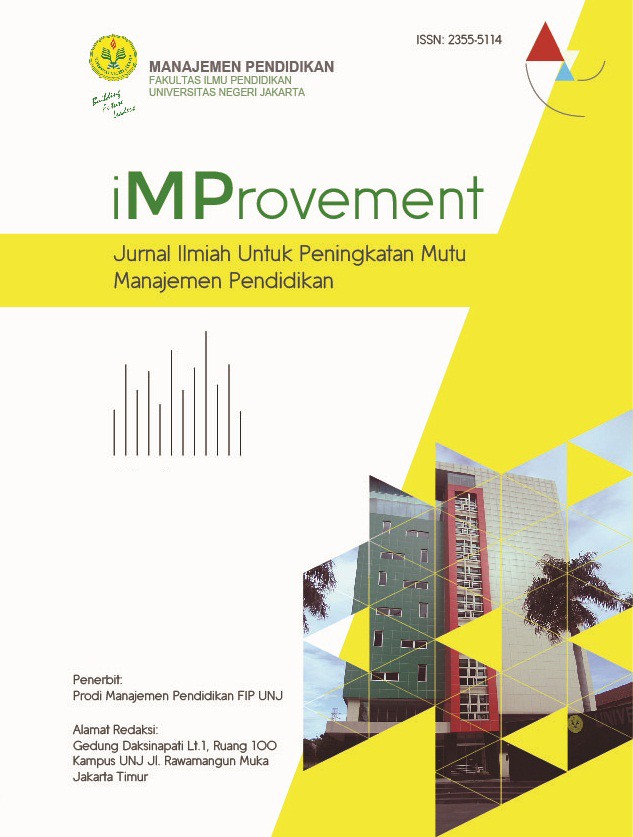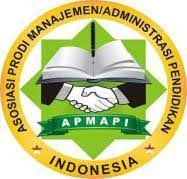MANAJEMEN PEMBELAJARAN AKTIF DAN EFEKTIF BERBASIS ROLE MODEL PADA GENERASI MILLENIAL
DOI:
https://doi.org/10.21009/improvement.v5i1.11249Keywords:
Teachers, Students, Education of Active and EfectiveAbstract
ABSTRACT
Learning is the center of teaching and learning activities consisting of educators and students who aim to realize intellectual maturity, emotional maturity, spiritual elevation, life skills, and moral greatness of students, so that learning activities are more effective and the material delivered can be mastered by participants the students need a change in the learning process carried out by a teacher.
The focus of this research problem is to find out how to manage the application of active and effective learning models in achieving learning objectives. This study aims to describe the extent to which the application of active learning models and effective learning in achieving learning goals in the cognitive, affective, and psychomotor domains.
The results of the study can be concluded that broadly the application of active and effective learning models in achieving learning objectives has been implemented well, namely in the cognitive domain applied methods included in the active and effective learning models such as the question and answer method, memorization, debate, and contributing suggestions . In the affective domain, the method of group discussion and recitation is applied (group collaboration). In the psychomotor realm, a drill or training method is applied.
Downloads
Published
How to Cite
Issue
Section
License
Copyright (c) 2019 Ruaifatul Labibah, Sobri Washil, Mohammad Rifa'i

This work is licensed under a Creative Commons Attribution-NonCommercial-ShareAlike 4.0 International License.
Authors who publish with this Journal agree to the following terms:
- Author retain copyright and grant the journal right of first publication with the work simultaneously licensed under a creative commons attribution licensethat allow others to share the work within an acknowledgement of the work’s authorship and initial publication of this journal.
- Authors are able to enter into separate, additional contractual arrangementfor the non-exclusive distribution of the journal’s published version of the work (e.g. acknowledgement of its initial publication in this journal).
- Authors are permitted and encouraged to post their work online(e.g. in institutional repositories or on their websites) prior to and during the submission process, as it can lead to productive exchanges, as well as earlier and greater citation of published works.
-
Users/public use of this website will be licensed to CC BY-NC-SA (Attribution & Non-Commercial-ShareAlike)



